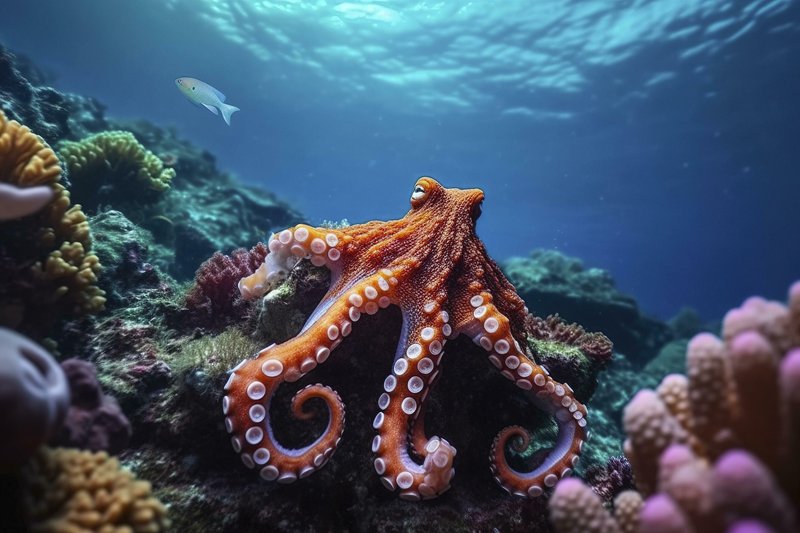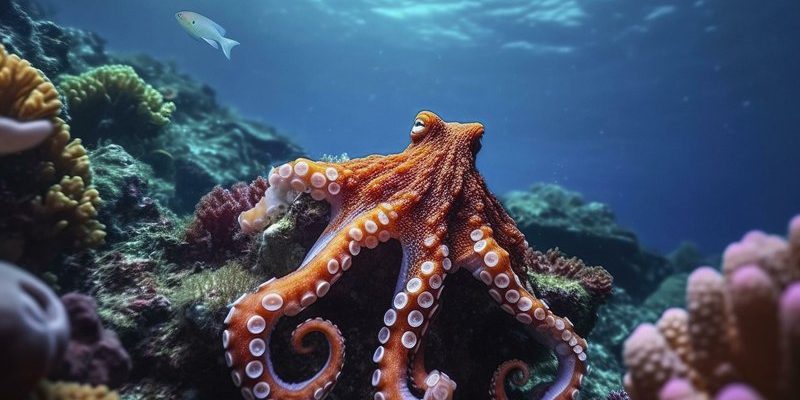
In recent years, it feels like the conversation around conservation has grown louder. With pollution, climate change, and overfishing altering oceans, our beloved octopuses face many challenges. Just like that good friend you worry about when they go through tough times, octopuses need our attention too. Let’s dive into what’s currently happening with their populations and what we can do to help.
Understanding Octopus Populations
When it comes to assessing whether octopuses are endangered, we need to consider several species. Believe it or not, there are about 300 species of octopus around the world. Some species, like the common octopus, are doing relatively well, while others are facing steeper declines. Essentially, it’s a mixed bag.
One major thing to remember is that octopus populations fluctuate naturally. Their life cycles can be brief—most live only about 1-3 years. This short lifespan means their populations can boom and bust quickly, depending on environmental conditions. For instance, if a specific area has a lot of food, you might see a surge in their numbers. But if things get tough, like with changes in water temperature or food shortages, they could disappear just as fast.
You might be wondering about the data scientists collect to understand these trends. They gather information through fisheries reports, marine surveys, and even citizen science projects where divers and ocean enthusiasts report their observations. All this helps create a clearer picture of octopus populations across various regions.
Major Threats to Octopuses
So, what’s putting pressure on these unique creatures? There are a few critical threats that we should look at more closely:
- Overfishing: Many octopus species are caught for food. Unsustainable fishing practices can decimate their numbers, especially if they’re not given time to reproduce.
- Climate Change: Rising ocean temperatures and ocean acidification significantly impact marine ecosystems. Changes in temperature can disrupt breeding cycles and food availability for octopuses.
- Pollution: Chemicals and plastics in the ocean harm octopus habitats. These pollutants can lead to health issues in marine life, including reproductive problems.
Let’s take a moment to think about the interconnectedness of these threats. For instance, overfishing can lead to an imbalance in the ecosystem. With fewer fish around, octopuses might struggle to find food, leading to decreased populations. It’s a cycle that feels overwhelming, but recognizing these factors is the first step in addressing them.
Conservation Efforts in Action
The good news is that many organizations are working hard to protect octopuses and their habitats. Conservationists are coming up with strategies that not only aim to preserve octopus populations but also the entire ocean ecosystem. Here are a few efforts underway:
1. Sustainable Fishing Practices: Initiatives are focused on encouraging sustainable fishing methods. This means fishing only what is needed, setting catch limits, and using gear that minimizes bycatch—the unintentional capture of non-target species.
2. Marine Protected Areas (MPAs): These are regions in the ocean where human activity is restricted to conserve marine life. MPAs allow octopus populations to thrive without the pressure of fishing and pollution. You can think of it as a safe haven, where octopuses can live and reproduce freely.
3. Public Awareness Campaigns: Education plays a huge role. People need to understand the importance of protecting octopuses and the challenges they face. Campaigns that highlight marine biodiversity help generate support for conservation initiatives.
The more we learn and share about these efforts, the better equipped we are to help octopuses and the ecosystems they inhabit.
The Role of Research in Conservation
Research is a key player in octopus conservation. Scientists are continuously studying their behavior, biology, and habitats. Understanding their lifecycle helps formulate better conservation strategies. For instance, studies on breeding can help determine the best times for fishing regulations to protect young octopuses.
Innovative research methods are being employed to monitor octopus populations. Techniques such as genetic analysis can provide insights into population structures. This information is crucial in determining if certain populations are at risk of extinction.
Further, by studying the impacts of climate change, scientists can better advocate for policies to mitigate these threats. As research evolves, so does our understanding of how to protect these amazing creatures effectively.
Your Role in Octopus Conservation
Now that you know more about the challenges octopuses face, you might be wondering how you can help. Here are some simple actions you can take:
– Support Sustainable Seafood: Choose seafood that comes from sustainable sources. Organizations like the Marine Stewardship Council (MSC) provide resources to help you make informed choices.
– Reduce Plastic Use: By decreasing your reliance on single-use plastics, you can help reduce pollution in our oceans.
– Get Involved Locally: Many communities have clean-up events or advocacy groups focused on marine conservation. Participating in these activities can make a real difference.
– Spread the Word: Share what you’ve learned about octopuses and their conservation. Awareness can drive bigger changes and inspire others to get involved.
Every small action contributes to the larger picture of ocean health, which ultimately benefits octopuses and countless other marine species.
So, are octopuses endangered? While some species are in trouble due to various human activities and environmental changes, there’s hope. Through dedicated conservation efforts, ongoing research, and collective action, we can work to protect these incredible creatures.
Remember, every little bit counts. As we deepen our understanding of octopuses and their ecosystems, we can create a world where both people and marine life thrive together. Let’s keep the conversation going and support the future of octopuses—our eight-armed friends deserve it!

